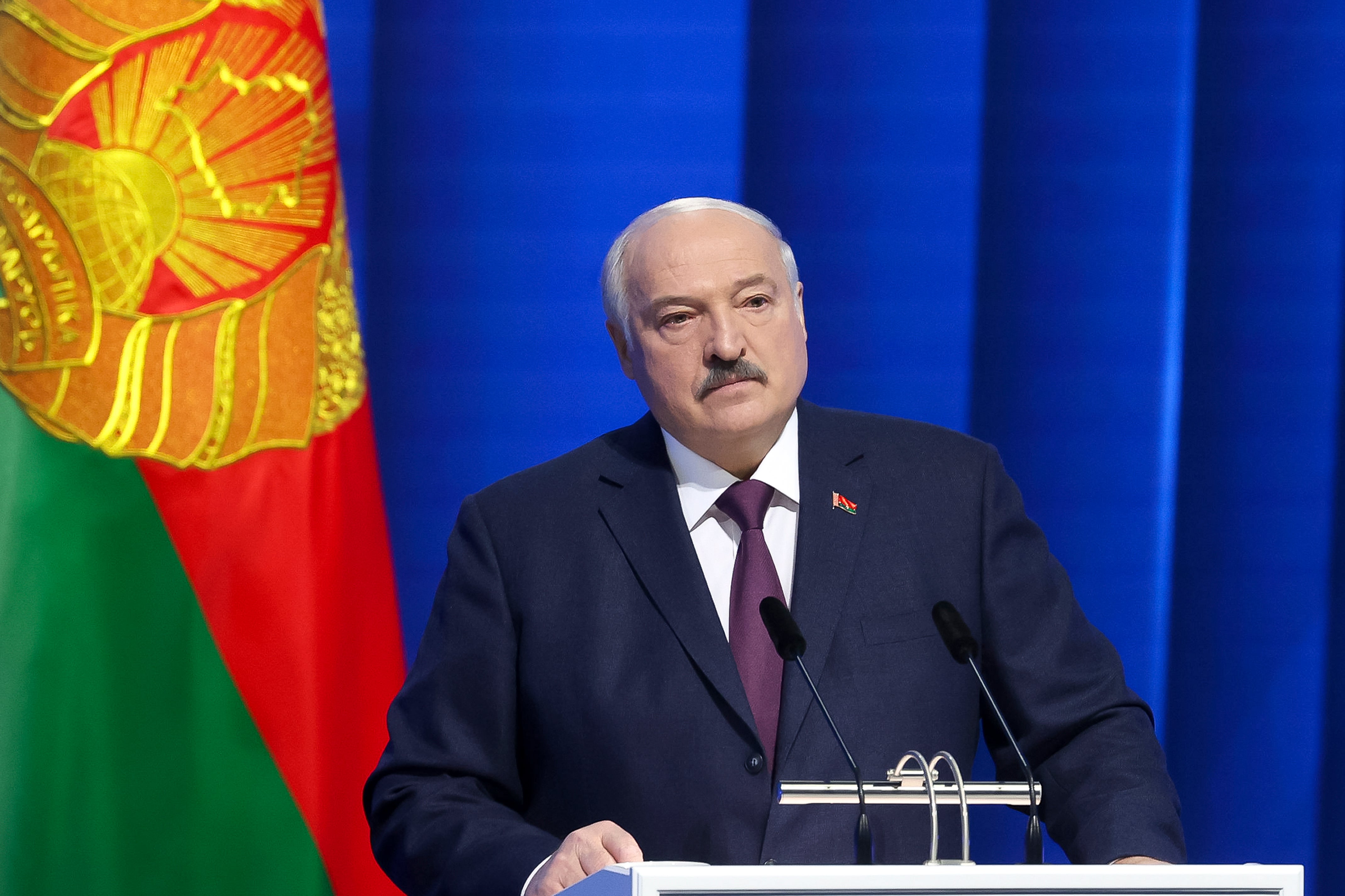
The president of Belarus has said that Russian strategic nuclear weapons might be deployed in his country along with part of Russia’s tactical nuclear arsenal.
Russian president Vladimir Putin said earlier this week his country intends to deploy tactical, comparatively short-range and small-yield nuclear weapons in Belarus, its neighbour and ally.
The statement from Belarusian president Alexander Lukashenko on Friday about strategic nuclear weapons such as missile-borne warheads will pose an even greater threat if it comes to pass.
Mr Lukashenko spoke during his state-of-the-nation address amid escalating tensions over the conflict in Ukraine.
"Putin and I will decide and introduce here, if necessary, strategic weapons, and they must understand this, the scoundrels abroad, who today are trying to blow us up from inside and outside," the Belarusian leader said.
"We will stop at nothing to protect our countries, our state and their peoples."

Earlier on Friday, Mr Lukashenko unexpectedly called for a ceasefire in Ukraine. A truce, he said in his address in Minsk, must be announced without any preconditions and all movement of troops and weapons must be halted.
On Wednesday, a senior Kremlin diplomat confirmed that Russia would no longer be warning the US ahead of carrying out missile tests.
However, one day later he reversed this statement, noting that Russia will continue to provide advance notice despite his previous convictions that Moscow had ceased all information exchanges with Washington.
Russian deputy foreign minister Sergei Ryabkov initially confirmed that Moscow was responding to the “fundamental irresponsibility of Western elites before their people and international security”, urging that Nato officials “adequately assess the seriousness of the situation” and accept these “changing realities.”
However, after the U-turn, Mr Ryabkov refused to confirm whether the 1988 U.S-Soviet agreement would include all the missile tests that Russia was obliged to issue notices about under the New START Treaty, an agreement from which Mr Putin suspended participation in February.
Though emphasising that it was not withdrawing altogether, Russia expressed that it could not allow the US to inspect its nuclear missile sites whilst Washington had declared the defeat of Russia in Ukraine as its goal.
For decades, the nations have shared information with one another about planned nuclear missile testing. A legacy of the Cold War and its aftermath, this practice has been critical in ensuring that test launches are not mistaken for legitimate missile attacks.







